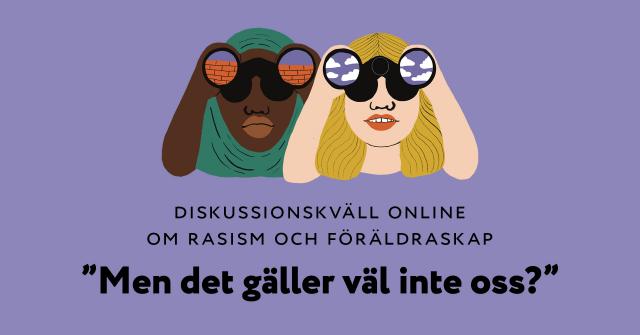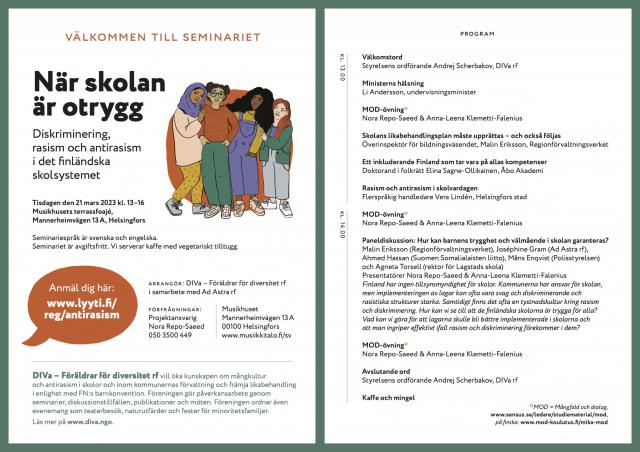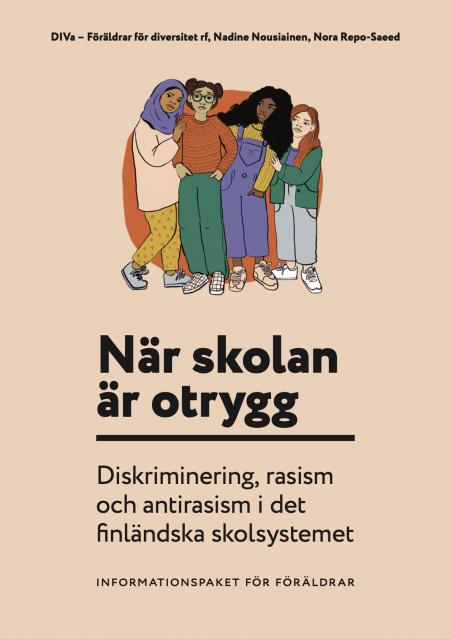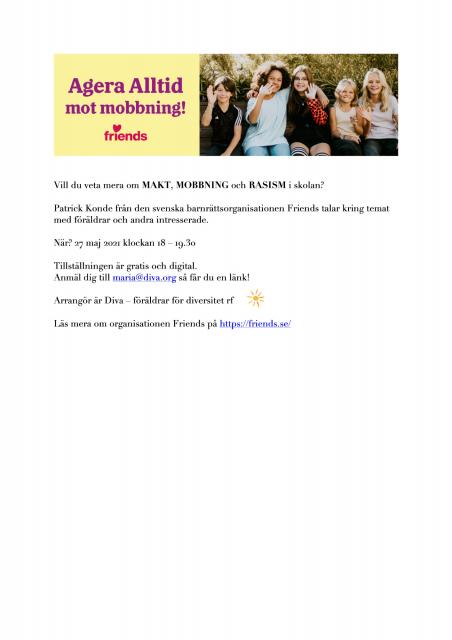DIVas verksamhet |

Rapport för ECRI
DIVa rf och Ad Astra rf har färdigställt en rapport för Europeiska kommissionen mot rasism och intolerans (ECRI) som undersöker förekomsten av rasism, mobbning och diskriminering i finska skolor. Läs mera »
13.12.2024 kl. 14:00

Seminariet "Trygg på Dagis"
Seminariet riktar sig till småbarnspedagoger och andra som möter barn både på arbetstid och till vardags, och som vill lära sig mera om rasism och antirasism i en dagiskontext.Läs mera »
20.05.2024 kl. 14:56

Men det gäller väl inte oss?
En interaktiv föreläsning om varför just du också behöver göra något åt rasism.
Tisdagen den 12 september 2023 kl. 17–19
Läs mera »
25.04.2023 kl. 10:15

Rasismen ökar i finlandssvenska skolor
Rasismen har samtidigt blivit råare än vad den varit tidigare, säger rektor Agneta Torsell.Läs mera »
24.03.2023 kl. 11:00

När skolan är otrygg
Välkommen till seminariet "Diskriminering, rasism och antirasism i det finländska skolsystemet" tisdagen den 21 mars 2023 kl. 13–16Läs mera »
02.03.2023 kl. 11:27

InformatIonspaket för föräldrar
Den här broschyren är en hjälpreda när det brister. Se den som ett brev från förälder till förälder, utan mellanhänder.Läs mera »
01.03.2023 kl. 20:37

Hur kan jag tala med mitt barn om rasism?
En interaktiv online föreläsning o antirasistiskt föraldraskap
När? tisdagen den 19.4. 2022 klockan 17 - 19Läs mera »
30.11.2022 kl. 12:46

Friends föreläsning
Vill du veta mera om MAKT, MOBBNING och RASISM i skolan?Läs mera »
01.11.2022 kl. 11:32

Efter Svenska Yles granskning: Undervisningsminister Li Andersson vill utreda bättre övervakning i skolorna
Ministern lovar ingen nationell reglering av arbetet mot mobbningLäs mera »
16.09.2022 kl. 13:21

